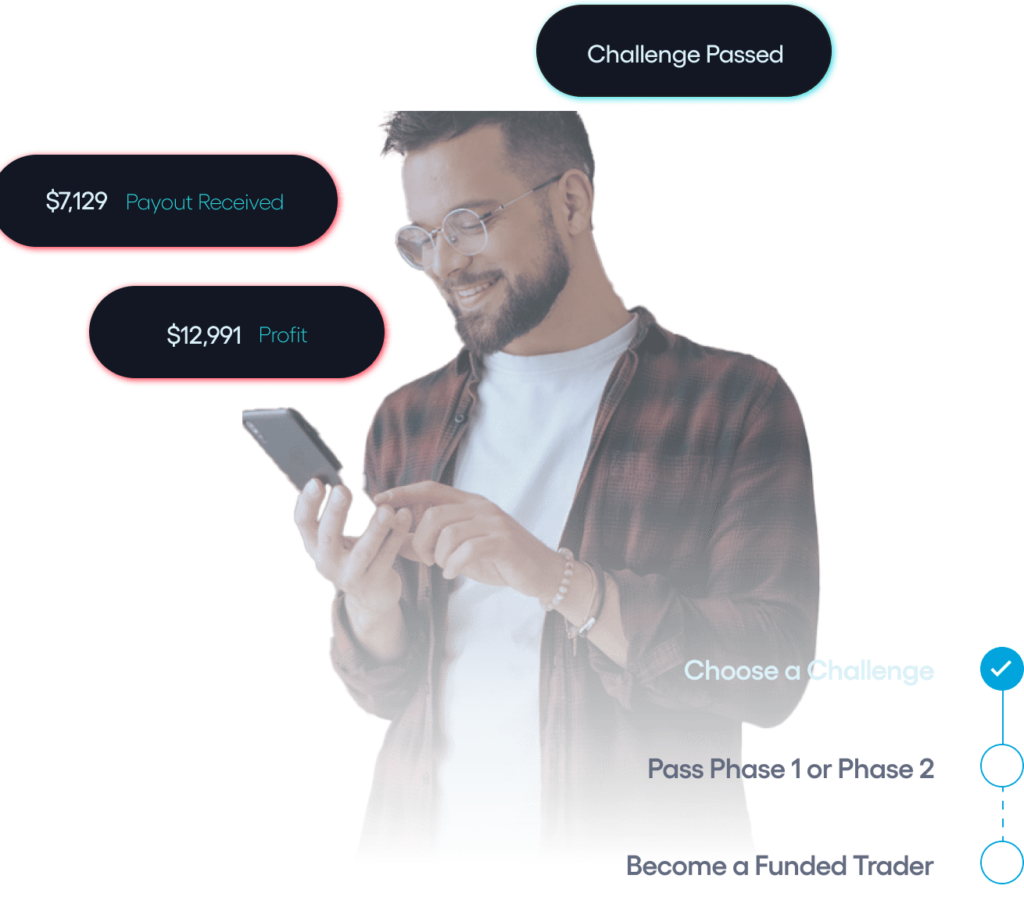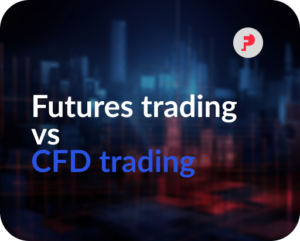Introduction
Futures vs CFD trading is a popular topic for traders looking to choose the right instrument for their strategy. Both offer opportunities to profit from price movements, but they cater to different trading styles. In this post, we’ll break down the key differences between futures and CFD trading to help you decide which is right for you
1. What Are Futures and CFDs?
Futures Trading
- Futures are standardized contracts. They require buyers to purchase or sellers to sell an asset at a set price on a specific future date.
- Commonly traded assets include commodities (gold, oil), indices (S&P 500), and currencies.
- Many traders use futures for speculation or hedging.
CFD Trading
- CFDs are contracts between traders and brokers. They involve exchanging the difference in an asset’s price between the opening and closing of the trade.
- CFDs do not involve owning the asset itself.
- Traders use CFDs to speculate on stocks, forex, indices, and cryptocurrencies.
2. Ownership of the Underlying Asset
Futures Trading
- Futures involve a commitment to buy or sell the actual asset. Most traders, however, close their positions before the contract expires to avoid delivery.
- Traders are directly exposed to the asset’s price movements.
CFD Trading
- CFDs are speculative. There is no ownership or delivery of the underlying asset.
- This makes CFDs simpler for traders who don’t want to deal with physical assets.
3. Leverage and Risk
Futures Trading
- Futures contracts offer high leverage. Traders can control large positions with a small margin.
- This leverage can amplify both profits and losses, requiring strict risk management.
CFD Trading
- CFDs also provide leverage, but it’s usually lower than futures.
- This makes CFDs slightly less risky for beginner traders.
4. Costs and Fees
Futures Trading
- Futures trading involves exchange fees and commissions. There may also be higher upfront capital requirements.
- However, popular futures markets often have tighter spreads and better liquidity.
CFD Trading
- CFD brokers usually charge through spreads and overnight fees (swap rates) for holding positions.
- Many brokers offer commission-free trading but widen spreads to cover their costs.
5. Market Hours
Futures Trading
- Futures markets have specific trading hours tied to the asset and exchange.
- Some global futures markets offer extended sessions, allowing you to trade almost 24/7.
CFD Trading
- CFDs are available nearly 24/7, depending on the broker.
- This makes CFDs more accessible for traders who want flexibility.
6. Regulation and Transparency
Futures Trading
- Futures are traded on regulated exchanges. This ensures transparency and standardization.
- Traders benefit from reduced counterparty risk.
CFD Trading
- CFDs are over-the-counter (OTC) products. They’re traded directly with brokers, which increases counterparty risk.
- Regulation varies by region, so choosing a reputable broker is essential.
7. Which Is Best for You?
Choosing between futures and CFDs depends on your trading style and goals.
Futures Trading Is Ideal If You:
- Prefer highly regulated markets.
- Want access to institutional-level markets with high liquidity.
- Are confident in your risk management skills.
CFD Trading Is Ideal If You:
- Want flexible, low-cost market access.
- Prefer to avoid owning physical assets.
- Value the simplicity of trading through a single broker.
Conclusion
Both futures and CFD trading offer excellent opportunities. Futures trading, like that offered by FunderPro Futures, is ideal for traders who seek leverage, transparency, and access to institutional-level markets. CFD trading, on the other hand, appeals to those looking for flexibility and simplicity.
Understanding the differences can help you decide which suits your trading strategy. Ready to explore futures trading? Click the link below and start your futures trading with FunderPro Futures




